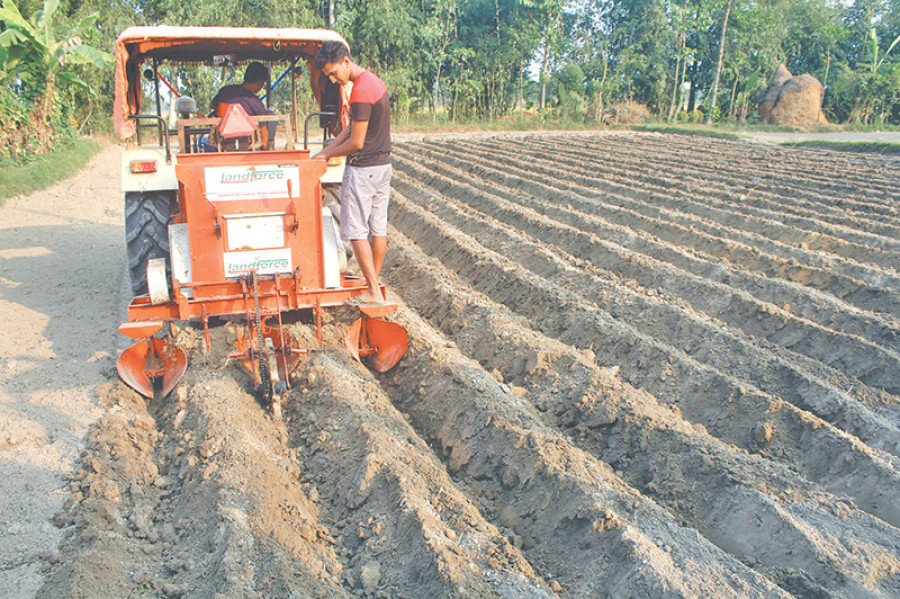Money
Govt farming project reaps great results
In Jhapa, more and more farmers are being drawn towards the business of commercial potato farming, as the government has been rolling out subsidies and increasing the rate of mechanisation to significantly cut down the cost of production for farmers.
Arjun Rajbansi
In Jhapa, more and more farmers are being drawn towards the business of commercial potato farming, as the government has been rolling out subsidies and increasing the rate of mechanisation to significantly cut down the cost of production for farmers.
Currently, a number of schemes under the 10-year-long Prime Minister Agriculture Modernization Project are being rolled out in a bid to help farmers improve their potato production. As a result of this project, this year, potato cultivation areas have doubled in comparison to last year.
Under the project, Kamal Rural Municipality has been declared as a “potato pocket” area. And according to government statistics, this area set aside for potato cultivation has doubled to 40 bigas this year.
And while there were 35 dedicated farmers involved in this potato farm last year, this year there are 60 members. Under this project, a potato management committee has also been formed, which helps farmers to plant seeds by using potato planters.
“The committee also helps farmers harvest their produce by using a potato harvester without charging them any extra cost for the machine,” said Yam Bahadur Rai, chairman of the committee. Tanka Kattel, a facilitator of Integrated Pest Management (IPM) Agriculture Cooperative, said that the committee and the cooperative would also facilitate farmers to sell their produce once it is harvested. Similarly, farmers are provided Rs300 per biga as subsidy to encourage farmers to grow potatoes.
Last year, 30 farmers in the cooperative were able to sell potatoes worth Rs50,000 each, with the farm gate price of potatoes being Rs18 per kg. “As the cost of production has gone down significantly and we were able to earn a reasonable price last year, I decided to continue to grow potatoes,” said Durga Prasad Parajuli, a local farmer in Kamal Rural Municipality. “We have received 50 percent of subsidy on potato seeds, and the committee has been helping us with potato transplanter and harvester which have significantly reduced our costs of production,” he said, adding that all these schemes has encouraged farmers to grow potatoes in a commercial way.
According to agro technicians, it takes 20 minutes to plant potatoes on a kattha of land using the machine. By planting seeds via the traditional method, it takes one at least a day, with the labour of five people, to complete the plantation. “The potato planter saves time and costs significantly,” said Govinda Shrestha, another local farmer. “Almost 75 percent of our costs are cut down, and because of this more and more farmers are willing to grow potatoes for a living.”
The Rs130-billion Prime Minister Agriculture Modernisation Project, which envisages adopting modern farm techniques to boost productivity, and making the country self-reliant in food, was implemented in 2016.




 8.99°C Kathmandu
8.99°C Kathmandu














